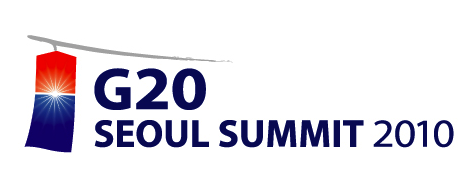"Uncertainties and risks remain amid the slow world economic recovery," said Kim Jae-chun, deputy governor of the Bank of Korea (BOK) in Seoul. "G20 member countries need to formulate a more coordinated framework."
As the first Asian country to host the G20 summit, South Korea has vigorously pushed for the establishment of a global financial safety net, a network of insurance and loan instruments aimed to cope with volatile global capital flows.
The volatility of the South Korean won is a serious concern for South Korea. During the 1997-1998 Asian financial turmoil, its currency saw sharp depreciation. When the global financial crisis hit in 2008, it saw a huge outflow of foreign capital from its stock and bond markets.
By spring 2009, the South Korean economy had recovered faster than Europe's or the United States'.
As a result, international capital started flowing in once again into the country, causing the South Korean won to become more volatile.
South Korea is pushing forward a Global Stabilization Mechanism (GSM), a framework to complement other bilateral and regional liquidity support arrangements for countries hit by contagion.
"I know Germany and other advanced countries are a bit suspicious about expanding the system to cover the globe as they worry that it might cause more hazards. We will have to address that concern and at the same time try to establish a more systematically expanded global financial safety network," Kim said.
What South Korea and other countries are asking for is a system that can cover the whole world, he added.
"Developing countries didn't do anything to cause the financial crisis but have suffered the most from the global crisis," said Wongi Choe, assistant professor at the Institute of Foreign Affairs and National Security under the Ministry of Foreign Affairs and Trade.
A global financial safety net is needed to ensure emerging nations are able to cope with this sort of unexpected financial crises. Protection, such as extending the swap agreements among central banks, is needed to help developing countries ward off risks, Choe said.
The G20 is stepping up cooperation with the International Monetary Fund (IMF) to expand existing regional financial arrangements, such as the Chiang Mai Initiative in Asia. The regional monetary facility would complement the IMF mechanism instead of competing with it, said II Sakong, chairman of the presidential committee for the G20 Summit in November.
The G20 summit agenda also include transfer of voting power to the emerging economies.
In 2009, the G20 leaders agreed to transfer at least 5 percent of the IMF quotas to emerging markets and developing countries. At the G20 Toronto summit in June, the world leaders urged the IMF to complete the reform plan before the Seoul summit.
"The G20 has been mandated by leaders to come up with a conclusion before the Seoul meeting. So we have a deadline and a mandate, we need more concessions and cooperation from member countries to meet that deadline," said Kim, the BOK deputy governor.
"Hopefully, at the Seoul summit we can reach a favorable conclusion," Kim said.
Source: China Daily

댓글 없음:
댓글 쓰기